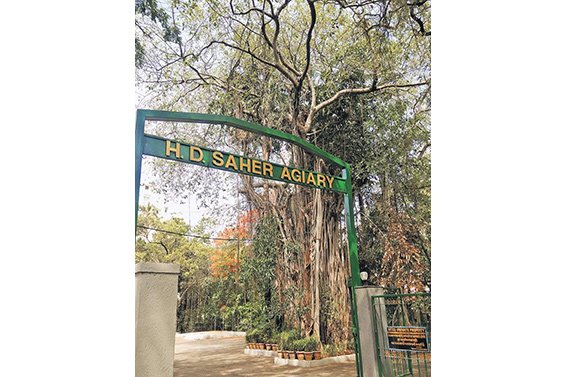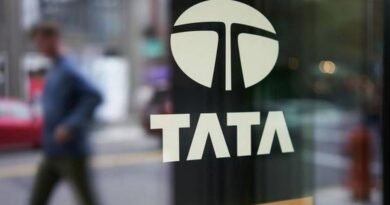New era at Tata Sons starts, Ratan Tata hands over control to N Chandrasekaran

The $103-billion Tata Group ushered in a new regime on Tuesday with Natarajan Chandrasekaran, former Tata Consultancy Services CEO and MD, taking over as chairman of Tata Sons. Chairing his first board meeting, Chandrasekaran promised to “bring greater rigour” to the group’s capital allocation policies and also “deliver superior returns” to shareholders.
Chandrasekaran’s task has been made easier by the discipline enforced by the earlier Tata Sons chairman, Cyrus Mistry who was unceremoniously ousted on October 24. Mistry started the cleaning-up process taking impairments at firms such as Tata Steel and Indian Hotels and selling unviable assets across companies including those at Tata Chemicals. Still, turning around the group’s larger companies will be a tough task — the top 10 listed companies together have an outstanding debt of R2.26 lakh crore. Despite having been around for over a decade now, Tata Teleservices has failed to come up with a viable business model and has run up large accumulated losses. Thanks to its overpriced purchase of Corus for $12 billion, under Ratan Tata’s watch, Tata Steel is highly over-leveraged with a gross debt of R82,777 crore.
Tata Power, meanwhile, had a debt-to-equity ratio of 2.3: 1 and an interest cover of less than 1, as at the end of December. The stock price of the utility is running nearly 50% below its lifetime highs it hit in 2008. Indian Hotels, which has posted losses in six of the last seven years thanks to several expensive acquisitions, has brought little cheer to its shareholders in the last decade.
HomeIndustry New era at Tata Sons starts, Ratan Tata hands over control to N Chandrasekaran
New era at Tata Sons starts, Ratan Tata hands over control to N Chandrasekaran
The $103-billion Tata Group ushered in a new regime on Tuesday with Natarajan Chandrasekaran, former Tata Consultancy Services CEO and MD, taking over as chairman of Tata Sons.
By: FE Bureau | Mumbai | Published: February 22, 2017 6:36 AM
0
SHARES
FacebookTwitterGoogle+LinkedInEmail
Chandrasekaran’s task has been made easier by the discipline enforced by the earlier Tata Sons chairman, Cyrus Mistry who was unceremoniously ousted on October 24.
The $103-billion Tata Group ushered in a new regime on Tuesday with Natarajan Chandrasekaran, former Tata Consultancy Services CEO and MD, taking over as chairman of Tata Sons. Chairing his first board meeting, Chandrasekaran promised to “bring greater rigour” to the group’s capital allocation policies and also “deliver superior returns” to shareholders.
Chandrasekaran’s task has been made easier by the discipline enforced by the earlier Tata Sons chairman, Cyrus Mistry who was unceremoniously ousted on October 24. Mistry started the cleaning-up process taking impairments at firms such as Tata Steel and Indian Hotels and selling unviable assets across companies including those at Tata Chemicals. Still, turning around the group’s larger companies will be a tough task — the top 10 listed companies together have an outstanding debt of R2.26 lakh crore. Despite having been around for over a decade now, Tata Teleservices has failed to come up with a viable business model and has run up large accumulated losses. Thanks to its overpriced purchase of Corus for $12 billion, under Ratan Tata’s watch, Tata Steel is highly over-leveraged with a gross debt of R82,777 crore.
Tata Power, meanwhile, had a debt-to-equity ratio of 2.3: 1 and an interest cover of less than 1, as at the end of December. The stock price of the utility is running nearly 50% below its lifetime highs it hit in 2008. Indian Hotels, which has posted losses in six of the last seven years thanks to several expensive acquisitions, has brought little cheer to its shareholders in the last decade.
You May Also Want To Watch:
7 Nations Want To Buy India & Russia’s BrahMos Cruise Missile: Reports
The new chairman outlined three strategic priorities, namely, bringing the group closer together to leverage its enormous collective strength, reinforcing a leader’s mindset among the operating companies and driving world-class operating performances across the group. “I look forward to working with my colleagues, the management teams and the boards of the companies towards achieving these goals,” he said.
Chandrasekaran’s mention of capital allocation and shareholder returns is interesting. Tata Sons had cited a fall in dividend income as an indicator of Mistry’s under-performance; dividend income from group companies fell from R1,000 crore in FY13 to R780 crore in FY16.
On Monday, TCS announced a R16,000-crore buyback of shares, the biggest beneficiary of which will be Tata Sons.
An email sent by Mistry to Ratan Tata in May 2016, a copy of which is with FE, reveals Tata Sons was concerned that group companies were approaching it only “when they require capital”, leaving it with little choice.
Chandrasekaran had turned in a stellar performance at TCS, the country’s most valuable firm. Under his watch, the software major’s quarterly revenue rose a stunning 300%; in the three months to December, it clocked a profit of $1 billion. During his tenure the company’s market capitalisation increased by Rs 3.1 lakh crore, which is roughly equal to the combined current market capitalisation of Infosys and Wipro.





